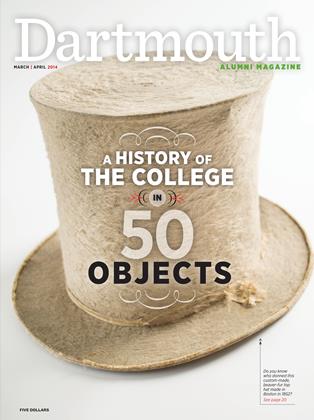WALL STREET JOURNAL EDITOR ANAND DREW international attention with her exposé of the Indian government and World Health Organization’s negligence of drug-resistant tuberculosis, published as a series last year. In reporting the story of Rahima Sheikh, whose six-year battle with TB left her almost untreatable, Anand visited the 40-year-old in the Mumbai slums. “I really believe that if you want to write about something, you can’t find a totally risk-free way of doing it, like showing up in a space suit,” says Anand, who lives in her hometown Mumbai with husband Gregory Kroitzsh ’87 and their two daughters. “I felt like her humanity had to be respected, and the only way of relating to her was not being afraid of her.” Exposure isn’t the only challenge Anand has overcome. “In my early days editors didn’t appreciate how tough my stories were because I was female,” she says. One of her favorite compliments came from a former editor of the Boston Globe. “Who the hell is this guy Anand?” he wrote. “He sure can write a good political story.”
Anand’s doggedness—first seen when she became a national swimming champion at 16, representing India in the 1982 Asian Games and Commonwealth Games—has most recently won her the Daniel Pearl Award for best investigative reporting. She shared a 2003 Pulitzer Prize in Explanatory Reporting for her coverage of corporate scandals in America. And her nonfiction book, The Cure: How a Father Raised $100 Million—and Bucked the Medical Establishment—in a Quest to Save His Children, was adapted into the 2010 movie Extraordinary Measures. “My job is to write surprising narratives that people will want to read even if they don’t particularly care about the country or the topics being written about,” says the history major. “The challenge is to find a way of telling a story so that someone will be drawn in and care.”
 View Full Issue
View Full Issue
More From This Issue
-
 Cover Story
Cover StoryABBEY D’AGOSTINO’S RACING SPIKES
March | April 2014 -
 Cover Story
Cover StoryJOHN RASSIAS’ EGG
March | April 2014 -
 Cover Story
Cover StoryELM TREE LEAF
March | April 2014 -
 Cover Story
Cover StoryPIECE OF WOOD FROM MOLLY BLACKBURN HALL
March | April 2014 -
 Cover Story
Cover StoryPEAVEY HEAD
March | April 2014 -
 Cover Story
Cover StoryLONE PINE
March | April 2014
Rianna P. Starheim '14
-
 OVERHEARD
OVERHEARDChecking In With a Few Fraternity Canines
JANUARY | FEBRUARY 2014 By RIANNA P. STARHEIM '14 -
 Article
ArticleClean Living
JANUARY | FEBRUARY 2014 By Rianna P. Starheim '14 -
 Article
ArticleMagic of Metal
SEPTEMBER | OCTOBER 2014 By Rianna P. Starheim '14 -
 Cover Story
Cover StorySome Like It Hot
MARCH | APRIL 2018 By RIANNA P. STARHEIM '14
Article
-
 Article
ArticleNew Faculty
March 1946 -
 Article
ArticleMaestro of Mood Music
November 1952 -
 Article
ArticleBequests Made to College By '72 and 'B9 Widows
February 1953 -
 Article
ArticleWith the Big Green Teams
DECEMBER 1967 -
 Article
Article1961 Fall Weekends Set
June 1974 -
 Article
ArticleGuardian of the Grant
November 1953 By Robert S. Monahan '29

